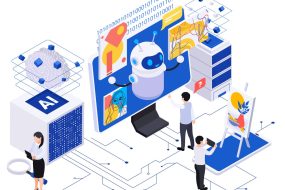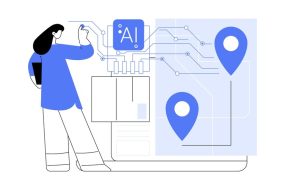
The Debate Over AI Regulation: What Should Be Done?
Artificial intelligence (AI) is rapidly transforming our world, offering incredible potential benefits but also posing significant risks. This has sparked a crucial debate: How should we regulate AI to ensure its safe and ethical development and deployment? This blog post explores the key arguments for and against AI regulation, examining the potential consequences of both approaches.
Arguments for AI Regulation
Proponents of AI regulation argue that intervention is essential to mitigate potential harms and ensure responsible AI development. Their main points include:
- Public Safety: Unregulated AI could lead to the development of autonomous weapons systems, biased algorithms in critical areas like healthcare and criminal justice, and job displacement without adequate social safety nets. Regulation can help prevent these scenarios.
- Ethical Concerns: AI systems can perpetuate and amplify existing societal biases, raising concerns about fairness and discrimination. Regulation can mandate fairness and transparency in algorithmic decision-making.
- Preventing Monopolies: The AI field is dominated by a few large tech companies. Regulation can promote competition and prevent these companies from wielding excessive power.
- National Security: AI can be misused for malicious purposes, such as creating sophisticated disinformation campaigns or carrying out cyberattacks. Regulation can help safeguard national security.
- Accountability and Transparency: It’s often difficult to understand how complex AI systems make decisions. Regulation can require developers to provide explanations for AI-driven outcomes.
Arguments Against AI Regulation
Opponents of strict AI regulation argue that it could stifle innovation and hinder the development of beneficial AI applications. They raise the following concerns:
- Stifling Innovation: Overly restrictive regulations could discourage investment in AI research and development, slowing down progress in areas with significant potential benefits, like healthcare and climate change.
- Difficulty in Defining AI: AI is a rapidly evolving field, making it difficult to create regulations that remain relevant over time. Premature or overly broad regulations could inadvertently restrict beneficial applications.
- International Competitiveness: Stricter regulations in one country could give companies in other countries with less stringent rules a competitive advantage. This could lead to a “race to the bottom” in regulatory standards.
- Unintended Consequences: Complex regulations can have unintended and unforeseen consequences, potentially creating new problems while trying to solve existing ones. A cautious and flexible approach is needed.
- Cost of Compliance: Complying with regulations can be costly for businesses, particularly smaller startups. This could disproportionately impact smaller players and limit their ability to compete.
Report on the Current Landscape of AI Regulation
Several countries and international organizations are actively working on AI regulation frameworks. The EU’s proposed AI Act is a prominent example, aiming to categorize and regulate AI systems based on their risk level. The U.S. has also released various policy documents and is considering different regulatory approaches. It’s crucial to monitor these developments to understand the evolving regulatory landscape and its potential impact on businesses and society.
For more information, you can consult the following resources:
Disclaimer: This information is intended for educational purposes only and does not constitute legal or professional advice. Please consult with relevant experts for specific guidance.
Citation Sources:
- Future of Life Institute. (n.d.). Benefits and Risks of Artificial Intelligence.
- OECD. (n.d.). OECD AI Policy Observatory.













